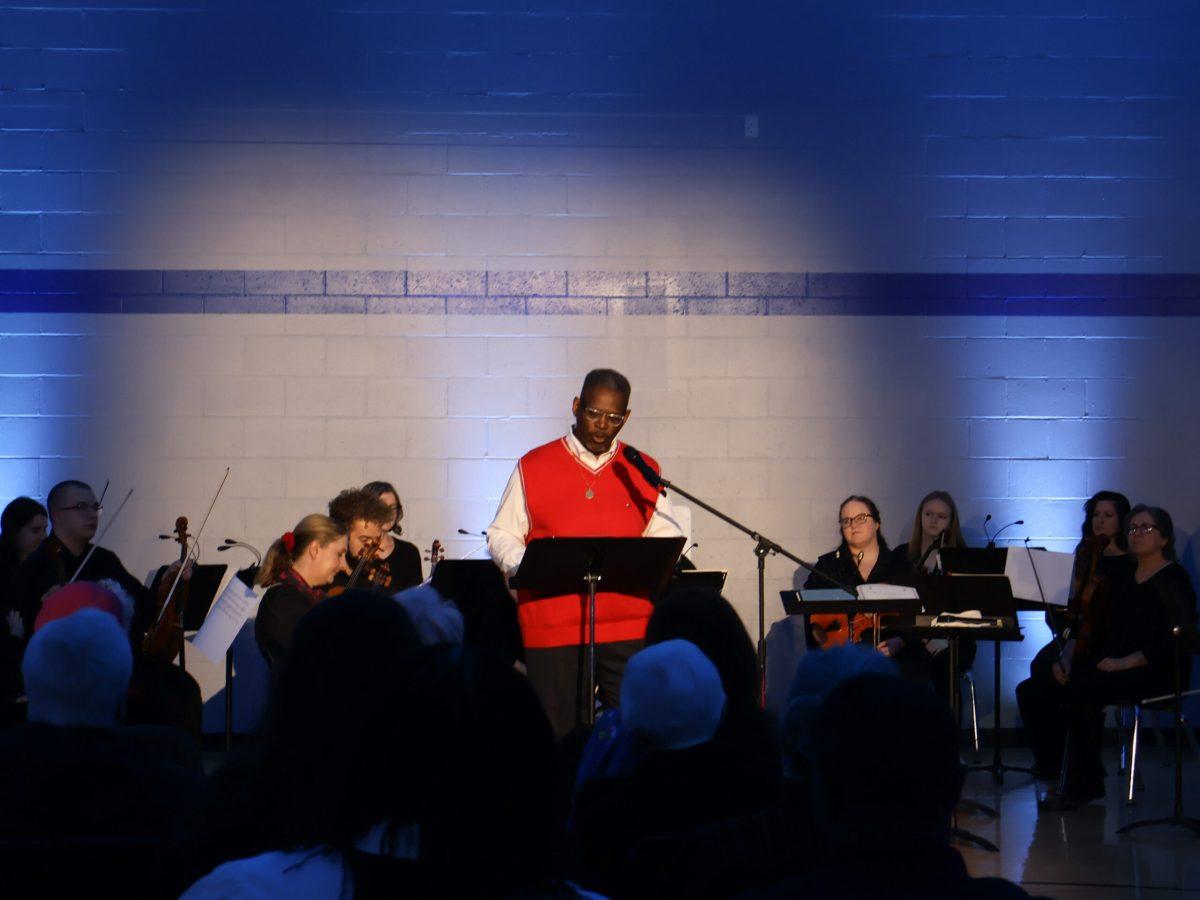
The Missouri Symphony put on two concerts to celebrate Black History Month, and to teach citizens about Columbia’s involvement in the Civil Rights Movement
In celebration of Black History Month, The Missouri Symphony held their “Tell Our Story: A Black History Month Concert” on Feb. 27 and Feb. 28. in the gymnasium of Douglass High School. The musicians and speakers captivated the audience with music by Black composers, stories about Columbia and emotional performances that narrated the city’s history.
Several performers said they had approximately one month to practice for the event. Wilbur Lin, the music director of The Missouri Symphony, put hours of research and planning into the event. Lin had help from local pastors, historians and scholars to accurately tell Columbia’s history.
The performers’ goal was to inspire upcoming Black musicians and recognize those who fought for civil rights in the community, such as world-renowned pianist John William “Blind” Boone. The symphony opened with “Mother and Child” by William Grant Still, transitioning to “Lyric for Strings” by George Walker and ending with “4 Novelletten” by Samuel Coleridge-Taylor. The performance also included narrations following a chronological story ending in hope.
“Black history is full of these dichotomies,” Lin said. “You have hope, you have oppression, you have hope despite oppression. That’s kind of what informed so many Black artists and that just naturally flew out of the program.”
The performers combined gospel hymns, spirituals and their faith with storytelling to recognize characteristics that strengthened the Black community during the Civil Rights Movement. Vocalist Rochara Knight incorporated these themes into her performance of “Wade in the Water.” Beyond her vocal range, she wanted to connect the Columbia community with its history and culture by familiarizing the audience with aspects of the past.
“This is a chance to learn some of that history and learn how African American people during that time affected and changed the background of the Columbia area, …and how most people think of the Harriet Tubmans and MLK,” said Knight. “There are people right here in Columbia that have made a huge impact on how we’re living in our culture here in the city.”
As Carla Tigue, a narrator and guest speaker, detailed the story of Columbia’s history, she painted a clear picture of Boone’s spirit and his contributions to Columbia. Tigue said the concert was for herself and for future generations.
“Knowing about my history is very important to me, so I’ll be able to pass it on to my children and my grandchildren,” Tigue said.
Joseph Wilson, another narrator and guest speaker, said that he thought the performance was important for a different reason. Wilson said he believed the concert was a catalyst for insight into pieces of Black history in Columbia that might have otherwise gone unrecognized.
“People should embrace the arts more,” Wilson said. “The arts are around us and we have so many gifted and talented young people that would love to be in an orchestra, or even to love to do what they see transpiring here tonight… Embrace the arts… don’t be ashamed. [You] may not be used to it, but you can come and check it out. You may find something that you like.”
The artists hoped the event provided a space to unite people under their love for the arts and help teach people about the Columbia community.
“I feel like it’s very important in that aspect for the Columbia community as a whole; it’s just another opportunity to sit down and learn from each other,” Knight said. “Unless we are willing to sit down and listen and learn from each other, how do we have growth and impact the city?”
Edited by Alex Gribb and Eric Hughes | [email protected] and [email protected] edited by Natalie Kientzy | [email protected] by Emilia Hansen | [email protected] by Emily Skidmore | [email protected]